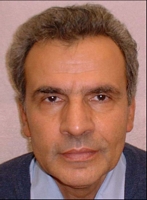 Aldo Paraboni (1940-2011). After obtaining his degree in Electronic Engineering in 1964 from Politecnico di Milano he began as a Teacher and Researcher at the Department of Electronics, Politecnico di Milano in early 1965.
Aldo Paraboni (1940-2011). After obtaining his degree in Electronic Engineering in 1964 from Politecnico di Milano he began as a Teacher and Researcher at the Department of Electronics, Politecnico di Milano in early 1965.
Since then his activity has been mainly devoted to Antennas and Radiopropagation; he began teaching such disciplines in 1969. Since 1981 he has been a Full Professor there. From 1969 to present he participated in the design and the execution of various radiopropagation projects such as SIRIO, OLYMPUS and ITALSAT. In this area he gained scientific responsibility in the program activities developed on behalf of the Agenzia Spaziale Italiana (ASI).
In the 1998 he presented a project for a new satellite-based telecommunication experiment at 22 GHz (DAVID – Resource Sharing Experiment) which was successively approved by the Italian Space Agency (ASI). A more recent proposal, partially derived from DAVID, consists in a new scientific experiment foreseeing simultaneous attenuation and depolarization measurements in various sites of Europe in the Q/V band (40/50 GHz), aimed at assessing the effectiveness of Propagation Impairments Mitigation Techniques; this experiment has been endorsed by ASI and ESA (TDP #5 - Alphasat) and presumably will see the light within the next 5 years.
Prof. Paraboni has been participating for a number of years in the activity of various national and international organizations such as COST 205, 255 and 280 projects of the European Community, the OPEX (Olympus Propagation EXperiment of ESA), the CEPIT (Coordinamento per l’Esperimento di Propagazione Italsat of ASI). He gave, and still gives, support to the International Telecommunications Union (ITU-R) and others. He is also part of the Italian Commission at the International Radio Scientific Union (URSI). His more recent research activity is in the field of the fade mitigation techniques based on the spatial correlation of the attenuation.
He is author of over 260 scientific papers published on national and international journals and congresses; he was awarded two international prizes: the “1990 Piero Fanti International Prize” (by Intelsat/Telespazio) for his activity in satellite technology innovation, and the “Premio Internazionale Cristoforo Colombo” for Space Communications (City of Genova, 1995). He is external editor of several international publications, such as the IEEE Transactions on Antennas and Propagation, Radio Science and the International Journal on Satellite Communications, and participates to various advanced research contracts in Space Telecommunications with the ASI and the ESA (the European Space Agency).
